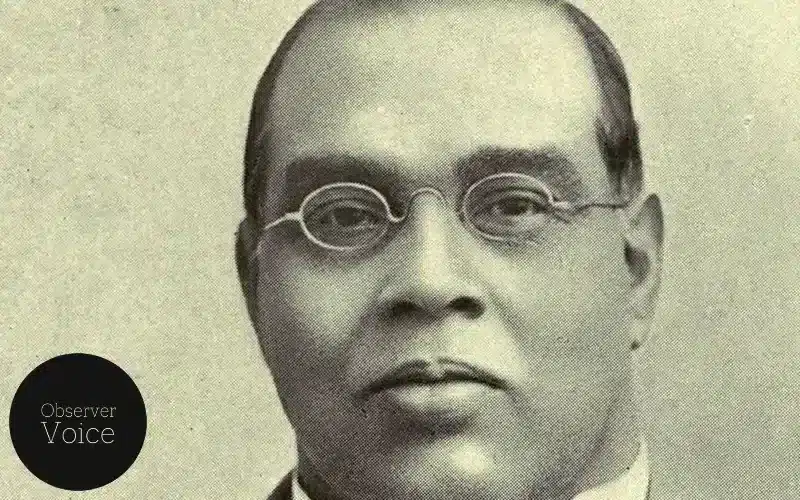Romesh Chunder Dutt: Illuminating India’s History Through Literature and Advocacy

Romesh Chunder Dutt (13 August 1848 – 30 November 1909) was an Indian civil servant, economic historian, writer, and translator of Ramayana and Mahabharata. He was a pre-Gandhian national leader, and he was a contemporary of Dadabhai Naoroji and Justice Ranade. He was one of the biggest proponents of Indian economic nationalism. To explain British exploitation, he put forward the “Drain Theory” with Dada Bhai and Dinahaw Wacha.
Early Life and Career
Romesh Chundra Dutt was born on 13 August 1848, in Kolkata, India. He went to various Bengali district schools, then Hare School, Calcutta. In 1861, after his father died in a boat accident in eastern Bengal, his uncle, Shoshee Chunder Dutt, took over as guardian. He was a relative of Toru Dutt, one of Bengal’s most famous poets of the nineteenth century.
In 1864, he enrolled at Presidency College at the University of Calcutta. He won a scholarship after passing the First Arts exam in 1866, ranking second. In 1868, he and two of his friends, Behari Lal Gupta and Surendranath Banerjee, left for England without their families’ permission.
During his time at University College London, Dutt studied British writers. He took third place in the open exam for the Indian Civil Service in 1869. In 1871, the Honourable Society of the Middle Temple called him to the bar. He joined the Indian Civil Service as an assistant magistrate and collector. In 1883, he became the first Indian district magistrate, then a divisional commissioner in Burdwan, and later in Orissa (1894–95).
He retired from the ICS in 1897. When he returned to England in 1898, he became a lecturer at University College, London, and wrote his famous thesis on economic nationalism. When he returned from Britain, he was offered a job as dewan of Baroda State. He was very popular in Baroda, where he was called ‘Babu Dewan’ by the king, Maharaja Sayajirao Gaekwad III, family, and staff. He also served on the Royal Commission on Indian Decentralization in 1907.
In 1899, he was the Indian National Congress president. Additionally, he was a member of the Bengal Legislative Council. His works include ‘Economic History of British India’, ‘India in the Victorian Age and ‘History of Ancient Indian Civilization’ etc. Romesh Chundra Dutt gained special fame as a historical novelist. Initially, Ramesh Chandra Dutt composed 14-level texts on Indian Sanskrit and History in the English language. Later, under the influence of Bankim Chandra, he started composing in his mother tongue Bengali. Romesh Chundra Dutt gained special fame as a historical novelist.
Romesh Chundra Dutt died on 30 November 1909, in India.
Read More: 13 August in Indian and World History
Observer Voice is the one stop site for National, International news, Sports, Editor’s Choice, Art/culture contents, Quotes and much more. We also cover historical contents. Historical contents includes World History, Indian History, and what happened today. The website also covers Entertainment across the India and World.

